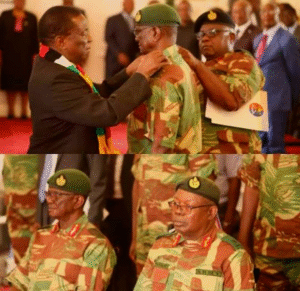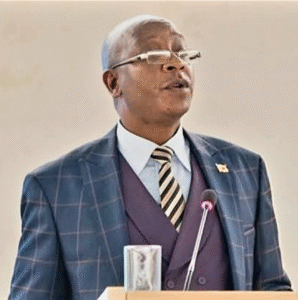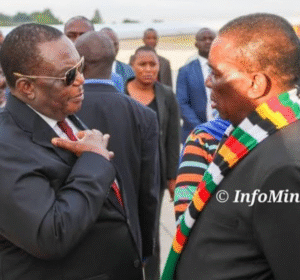THE BOTEREKWA TRAGEDY: COLLINS MNANGAGWA AND THE COST OF GOLD

In the heart of Zimbabwe’s Midlands province, the once-idyllic Boterekwa escarpment, also known as Wolfshall Pass, stands devastated. This natural gem has transformed into a stark symbol of environmental degradation, thanks to relentless gold mining activities led by Collins Mnangagwa, President Emmerson Mnangagwa’s son. Known affectionately as Takunda at home, Collins has emerged as a controversial figure in this unfolding ecological disaster.
Collins Mnangagwa is not just any businessman. As the twin brother to Sean Tafadzwa and one of the sons of First Lady Auxillia Mnangagwa, his actions carry significant political weight. He is the chairperson and a senior partner at Chengxi Mining (Pvt) Ltd, a company with Chinese origins deeply implicated in the environmental woes now synonymous with Boterekwa.
Since assuming this role, Collins has reportedly prospered, frequently traveling to China to secure deals that enrich him but impoverish his homeland. Under his stewardship, the lush landscapes of Boterekwa have been irreversibly altered. The mining pits and trenches dug deep into the earth have left the once-verdant hills bald and barren, their natural beauty replaced by the harsh, unyielding reality of exposed rock and soil.
Local communities bear the brunt of this exploitation. The air hangs heavy with the toxic scent of chemicals, among them cyanide, used in the gold extraction process. This contamination extends to the acoustic environment as well, where the constant rumble of machinery disrupts the tranquil chorus of bird songs and wind-whispered leaves. The escarpment’s streams, once clear and vibrant conduits of life, now sluggishly carry a murky concoction of pollutants.
The transformation of Boterekwa’s environment is not just a local issue but a national concern. President Mnangagwa, who frequently travels through the area to his rural home in Chief Mapanzure’s region in Zvishavane, is acutely aware of the devastation. Yet, his administration, along with the ruling party Zanu PF, appears complicit. Zanu PF has benefited from donations of office spaces by Chengxi, reinforcing the link between political patronage and environmental degradation.
The destruction has spurred outcry among citizens and environmental advocates alike. Illegal gold panning, initiated as far back as 2011, has compounded the area’s challenges. Despite temporary reparations to the damaged roads and landscapes, these activities resumed with vigor, largely unregulated and unchecked. Environmental management bodies have levied fines and called for compliance, but these measures have barely scratched the surface of the systemic issues at play.
Experts warn of an impending environmental disaster, not just in Boterekwa but across Shurugwi at large. The local ecosystem, once a haven for diverse flora and fauna, is on the brink of collapse. Heavy machinery continues to reshape the landscape daily, signaling a grim future where the natural beauty of the region could be lost forever.
The local authorities, including Chief Nhema, have voiced their concerns. They urge the government to intervene more decisively to curtail the destructive practices of mining companies in the area. Yet, with high-level political connections shielding companies like Chengxi, action remains frustratingly inadequate.
The environmental toll of Chengxi’s operations extends beyond the visible scars on the earth. The company’s engagement in practices like open-cast mining, which was not authorized in their initial agreement, and poor waste management practices pose severe risks to both human health and wildlife. Despite adopting supposedly efficient techniques like gold vat leaching, the excessive use of harmful chemicals like cyanide has led to significant environmental and health hazards.
In a recent public display, Collins was featured prominently at a Zanu PF event, affirming his intertwined roles as a business leader and political figure. This public association underscores the challenges of tackling environmental issues in regions where political and economic interests are deeply entangled.
As Boterekwa stands desolate, a reminder of nature’s vulnerability in the face of human greed, the call for responsible mining practices grows louder. The story of Collins Mnangagwa and the gold beneath the hills of Boterekwa is a cautionary tale, highlighting the dire consequences of prioritizing wealth over environmental stewardship. The future of this region hangs in the balance, dependent on the willingness of those in power to change their ways and prioritize the planet.




